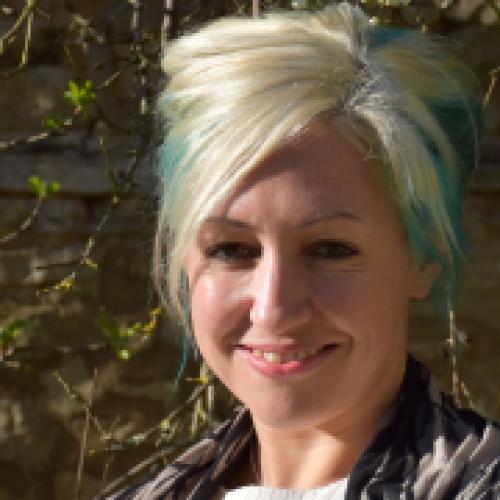
Dr Emily Troscianko
I am a researcher, writer, and coach. With a background in cognitive literary studies and a DPhil investigating the strange psychological power of the “Kafkaesque”, my current research sits somewhere between cog lit and the health humanities, focusing on the connections between reading habits and mental health, especially eating disorders. I am a Research Associate at The Oxford Research Centre in the Humanities (TORCH) and am currently cosupervising a DPhil student, Srinandini Mukherjee, whose project explores visualization in 19th-century French fantastic fiction using theoretical and empirical methods.
Alongside my research activity, I also offer recovery coaching for people with eating disorders as well as academic coaching, and run a popular blog on eating disorders, called A Hunger Artist, for Psychology Today. From 2018 to 2021 I designed and ran the Baillie Gifford Writing Partnerships Programme, which included a partner matching service, writing events, consultations, and other resources to support humanities graduates and postdocs in their academic writing—long a strangely under-supported skill at Oxford.
The common thread in all my professional activities is a desire to understand what makes habit change possible, sustainable, and meaningful.
If your interests overlap with any of this, I’d love to hear from you. In particular if you’re considering graduate study on bibliotherapy or in some area of empirical literary studies, I’d be happy to schedule a Zoom call (or maybe even an in-person coffee!) to chat about your ideas.
Troscianko, E.T., and Leon, M. (2020). Treating eating: A dynamical systems theory of eating disorders. Frontiers in Psychology, 11, 1801.
Blackmore, S., and Troscianko, E.T. (2018). Consciousness: An introduction. 3rd edition. London: Routledge.
Troscianko, E.T. (2018). Literary reading and eating disorders: Survey evidence of therapeutic help and harm. Journal of Eating Disorders, 6, 8.
Troscianko, E.T. (2017). Feedback in reading and disordered eating. In M. Burke and E.T. Troscianko (Eds), Cognitive literary science: Dialogues between literature and cognition (pp. 169-194). New York: Oxford University Press.
Troscianko, E.T. (2014). Kafka’s cognitive realism. London: Routledge.
Troscianko, E.T. (2013). Reading imaginatively: The imagination in cognitive science and cognitive literary studies. In M. Burke and E.T. Troscianko (Eds), ‘Explorations in cognitive literary science’. Special issue, Journal of Literary Semantics, 42(2), 181-198.
See my website for full-text links and a complete list.
I've also created an annotated Cognitive Humanities and Empirical Methods bibliography which may be of use to you if you're embarking on research in cognitive literary studies.
Dr Emily Troscianko

I am a researcher, writer, and coach. With a background in cognitive literary studies and a DPhil investigating the strange psychological power of the “Kafkaesque”, my current research sits somewhere between cog lit and the health humanities, focusing on the connections between reading habits and mental health, especially eating disorders. I am a Research Associate at The Oxford Research Centre in the Humanities (TORCH) and am currently cosupervising a DPhil student, Srinandini Mukherjee, whose project explores visualization in 19th-century French fantastic fiction using theoretical and empirical methods.
Alongside my research activity, I also offer recovery coaching for people with eating disorders as well as academic coaching, and run a popular blog on eating disorders, called A Hunger Artist, for Psychology Today. From 2018 to 2021 I designed and ran the Baillie Gifford Writing Partnerships Programme, which included a partner matching service, writing events, consultations, and other resources to support humanities graduates and postdocs in their academic writing—long a strangely under-supported skill at Oxford.
The common thread in all my professional activities is a desire to understand what makes habit change possible, sustainable, and meaningful.
If your interests overlap with any of this, I’d love to hear from you. In particular if you’re considering graduate study on bibliotherapy or in some area of empirical literary studies, I’d be happy to schedule a Zoom call (or maybe even an in-person coffee!) to chat about your ideas.
Troscianko, E.T., and Leon, M. (2020). Treating eating: A dynamical systems theory of eating disorders. Frontiers in Psychology, 11, 1801.
Blackmore, S., and Troscianko, E.T. (2018). Consciousness: An introduction. 3rd edition. London: Routledge.
Troscianko, E.T. (2018). Literary reading and eating disorders: Survey evidence of therapeutic help and harm. Journal of Eating Disorders, 6, 8.
Troscianko, E.T. (2017). Feedback in reading and disordered eating. In M. Burke and E.T. Troscianko (Eds), Cognitive literary science: Dialogues between literature and cognition (pp. 169-194). New York: Oxford University Press.
Troscianko, E.T. (2014). Kafka’s cognitive realism. London: Routledge.
Troscianko, E.T. (2013). Reading imaginatively: The imagination in cognitive science and cognitive literary studies. In M. Burke and E.T. Troscianko (Eds), ‘Explorations in cognitive literary science’. Special issue, Journal of Literary Semantics, 42(2), 181-198.
See my website for full-text links and a complete list.
I've also created an annotated Cognitive Humanities and Empirical Methods bibliography which may be of use to you if you're embarking on research in cognitive literary studies.